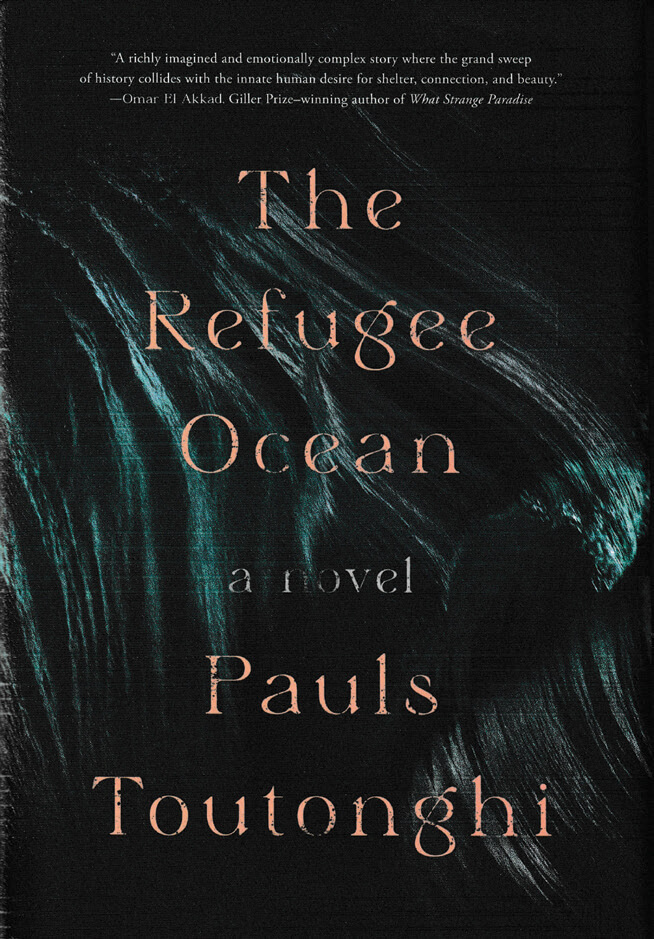
01 Feb Books: Reading the West
The Refugee Ocean by Pauls Toutonghi (Simon & Schuster, $27.99) is the kind of novel for which the form was invented. It creates sweeping, lush worlds, fully inhabited by its unforgettable characters. It spans continents and lifetimes with careful detail and balance. It leaves the reader deeply moved.
The story shifts from near-present-day Aleppo, Syria to post-World War II Beirut, Lebanon — two places close on the map but worlds apart in time. The characters we follow in each location and era, though unknown to each other, are bound by a love for — and brilliant adeptness at — the piano.
In Aleppo, teenager Naïm Rahil sees his family torn apart by civil war, then escapes with his mother to a refugee camp in Jordan. Here, they attempt to rebuild their lives while Naïm is haunted by his missing family members as well as part of one of his hands, which was injured in the attack that destroyed their home. Ultimately, his mother makes a terrible sacrifice to give her son a chance to survive.
In Beirut, 23-year-old Marguerite Toutoungi lives under the oppressive control of her father and his patriarchal culture. In the shadow of neighboring war, as the newly formed State of Israel displaced hundreds of thousands of Palestinian Arabs from their homes, she only dreams of someday playing her piano compositions in the great halls of Paris, while her father has destined her to a loveless marriage designed to shore up the family’s economic standing. A chance meeting with a dashing and kind-hearted Cuban socialist upends both her father’s plans and her dreams, and leads to a rash and fateful decision.
Both of these characters become tenuously connected by the book’s third protagonist, Annabel Crandall. In youth, she becomes Marguerite’s friend and confidant, who, in a moment of desperation, entrusts her with her most prized possession. Then, in her final days, Annabel befriends Naïm, saving him and his mother from poverty and hunger, and ultimately helping Naïm heal both his hand and spirit to embrace the gift created a lifetime ago by Marguerite. Their musical passion and artistry are brought together in a kind of duet that, in the end, honors the mutual friend who bridges their worlds.
In addition to a compelling, richly told story, The Refugee Ocean brings the grim realities of refugees from political and ideological nightmares into poignant focus. The hope is that readers of this finely tuned book will find a greater empathy for those needing to be welcomed to our country. The world is full of Naïms and Marguerites and is in dire need of more Annabels.
Of Note
Laura Pritchett pushes the boundaries of what a novel can be in Playing with (Wild)fire (Torrey House Press, $18.95) and, in doing so, creates a living testament to the lands and communities shaped by wildfires. Her soul-penetrating book moves from person to person — living, loving, and struggling amid a devastating Colorado fire — revealing how they and their environment are tightly and perilously interconnected. Shifting from narrative storytelling to drama to poetry — even to forms beyond what’s normally recognized as creative, like a grant application and astrology chart — Pritchett weaves something of a full wildfire ecology and demonstrates fire’s all-encompassing effects on people within its grip. This is a book to revisit, one that will grow in its poignancy as the prevalence of wildfire expands in the arid West.
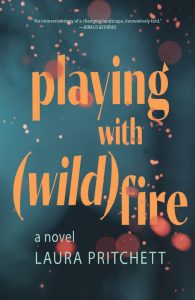
In Birding While Indian: A Mixed-Blood Memoir (Mad Creek Books, $19.95), Thomas C. Gannon discovers key sightings of various bird species to be doorways into his past, culture, and life’s journey. Through ruminations of these moments “in which a particular species became forever entwined in [his] life and mind,” Gannon confronts the trauma and racism associated with an Indigenous existence within the colonizing aggression and forced religiosity of white America. Through this process, the book becomes a genre-crossing blend of naturalist journal, historical polemic, down-to-earth memoir, and celebration of our avian relatives that share this troubled and spectacular world with us.
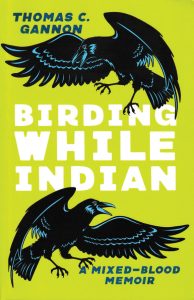
Losing a child is perhaps the worst tragedy a parent can face, as Brad Orsted painfully details in Through the Wilderness: My Journey of Redemption and Healing in the American Wild (St. Martin’s Press, $29). The death of Orsted’s daughter, Marley, nearly meant the end of him, too, as alcohol and suicidal thoughts consumed him in her wake. However, in Yellowstone National Park, he was offered a reason to live in the form of an encounter with a grizzly bear. This baptism of sorts into the healing world of the wild eventually led him back from the brink and into a new life of wholeness and dedication to saving the wilderness and its bears that so generously saved him.
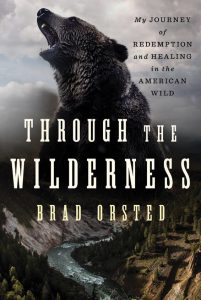
A much-needed comprehensive guide to the birds of Yellowstone National Park is finally available with Yellowstone’s Birds: Diversity and Abundance in the World’s First National Park (Princeton University Press, $35), edited by Douglas W. Smith, Lauren E. Walker, and Katherine E. Duffy. The book draws on the expertise of numerous renowned ornithologists and wildlife biologists to provide detailed notes on the park’s best birding sites, fascinating and informative species accounts, conservation statuses, and the greater context of the geology, geography, and history of Yellowstone. Stunning full-color photography, maps, and charts round out the offerings of this book, making it both valuable science and delightful artwork. This volume is a must-have addition to any collection of books on both Yellowstone and birds.
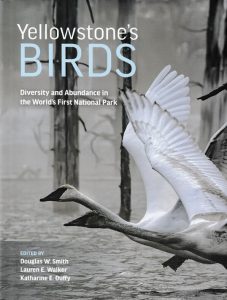
Marc Beaudin is a poet, theater artist, and bookseller based in Livingston, Montana. He has contributed to numerous publications, written two books — Life List: Poems and Vagabond Song: Neo-Haibun from the Peregrine Journals — and his work has been included in anthologies dedicated to environmental and social justice.



No Comments